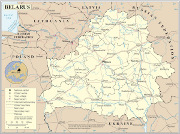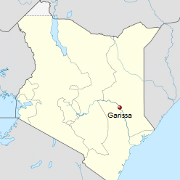By Brian Nixon
Special to ASSIST News Service
ALBUQUERQUE, NEW MEXICO (ANS) -- When news surfaced concerning the widespread persecution of Christians in Nigeria (as reported by Dan Wooding:
| An early Brethren church in America |
Persecution is nothing new for Christians who are-and were-part of what is known as the Radical Reformation (roughly 1530's-1800 AD), of which the Ekklesiyar Yan'uwa churches in Nigeria derive their lineage.
According to Brethren writer, Donald Durnbaugh ("Believer's Church: The History and Characteristic of Radical Protestantism"), the Radical Reformation consisted of groups such as the Mennonites, Quakers, Brethren, and later, the Methodist, in addition to several others known groups.
Though sharing core beliefs with the larger protestant community of faith such as Christ alone (Solus Christs), grace alone (Sola Gratia), faith alone (Sola Fide), and the priesthood of all believers, the Radical Reformers held individual core beliefs (though not all Radical Reformers agreed upon the details of these beliefs).
Here is a snapshot of values held in common among the Radical Reformers.
 |
| George Fox |
Two, the Bible is the only source of authority for the Church, not an individual (such as the Pope) or particular statement of faith (much like Luther's Catechism).
Three, because a Christian is a saved individual, he or she should act in accordance with his or her new life in Christ. Particular attention was given to Christian living, rather than disputing theological points or developing set theologies. From the yearning to live like Christ, many in the Radical Reformation turned to pacifism and simple living as means to live "peaceable with all men" (Romans 12:18). Additionally, members in the Radical Reformation tended to take Jesus' teachings in the four Gospels as their rule of living, particularly those found in the Sermon on the Mound. Today, groups such as the Brethren, Mennonite, and Quaker continue their strong stance on pacifism and simple living. The Brethren are fond of saying, "When Jesus said to 'love your enemies,' I don't think he meant to kill them."
 |
| Menno Simons |
When you turn to the history of the Radical Reformation, you would need to look to each particular group for its unique heritage and leaders. I recommend Donald Durnbaugh's book mentioned above. But because we've mentioned four groups (Mennonite, Quakers, Brethren, and Methodist) as representative of the Radical Reformation, a quick summary is in store.
The Mennonites were started by a former priest named Menno Simons (1496-1561). Growing up in Witmarsum, Friesland (Netherlands), Simons became the leader of a group of Radical Reformers within Northern Europe knows as the Anabaptist (meaning "re-baptizers").
The Quakers were started by an Englishman named George Fox ((1624-1691). After a survey of all the religious denominations of his day, Fox came to the conclusion that "only Christ spoke to my condition," thereby developing his ideals based upon the larger Radical Reformer positions, yet with a Holy Spirit-centered emphasis ("The Light Within").
 |
| John Wesley picture by William Hamilton |
Methodism began with Anglican clergymen, John (1703-1793) and Charles (1707-1788) Wesley. Being influenced by the Moravian Brethren, the Wesley's combined Anglican thought with larger Brethren values in a four-fold Christian experience: the Bible, tradition (learning from history), reason, and experience (being born again). The end result of a Christian life would produce fruit. Thereby the Wesley's placed strong emphasis on Christian behavior and piety.
As pointed out above, the history of believers within the Radical Reformation have been riddled with persecution. Beginning in the mid to late 1500's, many Christians were persecuted for their beliefs and lifestyle, particularly their emphasis on adult baptism. Some Anabaptist were killed by both Protestants and Catholics, being drowned as mocking representation of their belief in an adult baptism. Later, groups such as the Quakers and Brethren had to flee Europe due to persecution, arriving in the West (The United States and Central America) to practice their understanding of Christianity, and establishing "Peaceable Kingdoms." Artist such as Edward Hicks portrays the early Quaker quest for Christian living in his "Peaceable Kingdom" series of paintings now considered American classics.
 |
| Alexander Mack Seal |
Even more, groups such as the Amish, Shakers, and Hutterites (with a lineage going back to Menno Simmons and other Radical Reformers) became points of fascination for the larger public, being sought out for their craftsmanship and furniture.
As sad as it sounds, persecution has been part in parcel for believers within the Radical Reformation. So when news arrives that Nigerian Brethren Christians are being killed for their faith, they stand in a long line of Christians before them who have suffered for the cause of Christ.
What response should we-in the West-do for Christians suffering persecution around the world, and specifically in Nigeria?
I suggest three concrete steps:
One, pray for them. As a former member of a Brethren church, I know first hand that these brothers and sisters value our prayers. Ask God to give them strength and encouragement in the face of persecution, suffering, and death. Pray that they stand tall for Christ, loving their neighbor and their "enemies."
Two, support them. The Church of the Brethren is collecting funds to assist with the families struck by persecution, called the EYN Compassion Fund. Go to the Church of the Brethren website and click the donate button: https://secure2.convio.net/cob/site/Donation2?3620.donation=form1&df_id=3620
Three, bring awareness to your community and Church. Let others know about the persecution of our fellow Christians. Become a voice for the voiceless.
As one who spent many years ministering within the Brethren church, I've been privileged to meet, interact, worship with, pray with, sing with, and wash the feet of fellow Christians who love the Lord with all their heart, mind, soul, and strength. Because my own family heritage is a combination of Brethren (my great-grandmother was a Kline, a highly regarded Brethren family) and Quaker, my love for people within the Radical Reformation Christian family is great. But beyond my own experience, I count it a privilege as a Christian to support fellow Christians in a time of need. I plead with you to pray, support, and bring awareness to our fellow Christians in Nigeria and around the world facing persecution.


.jpg)






















